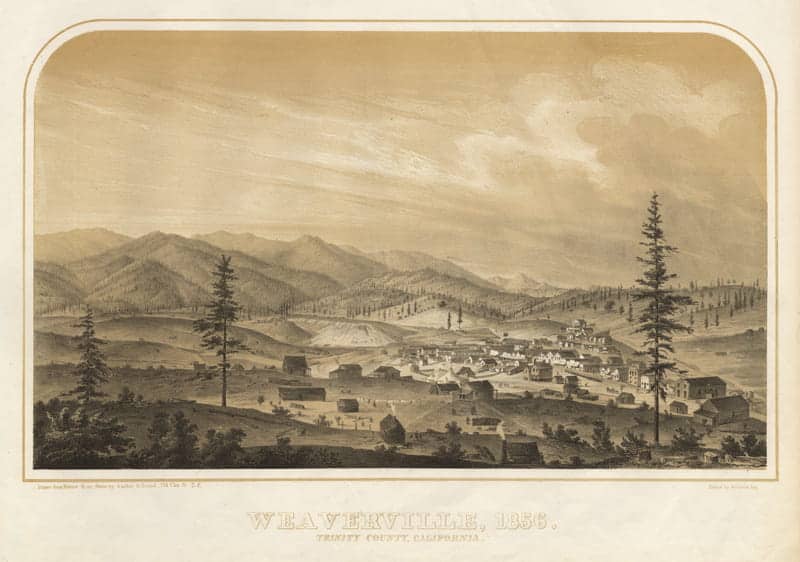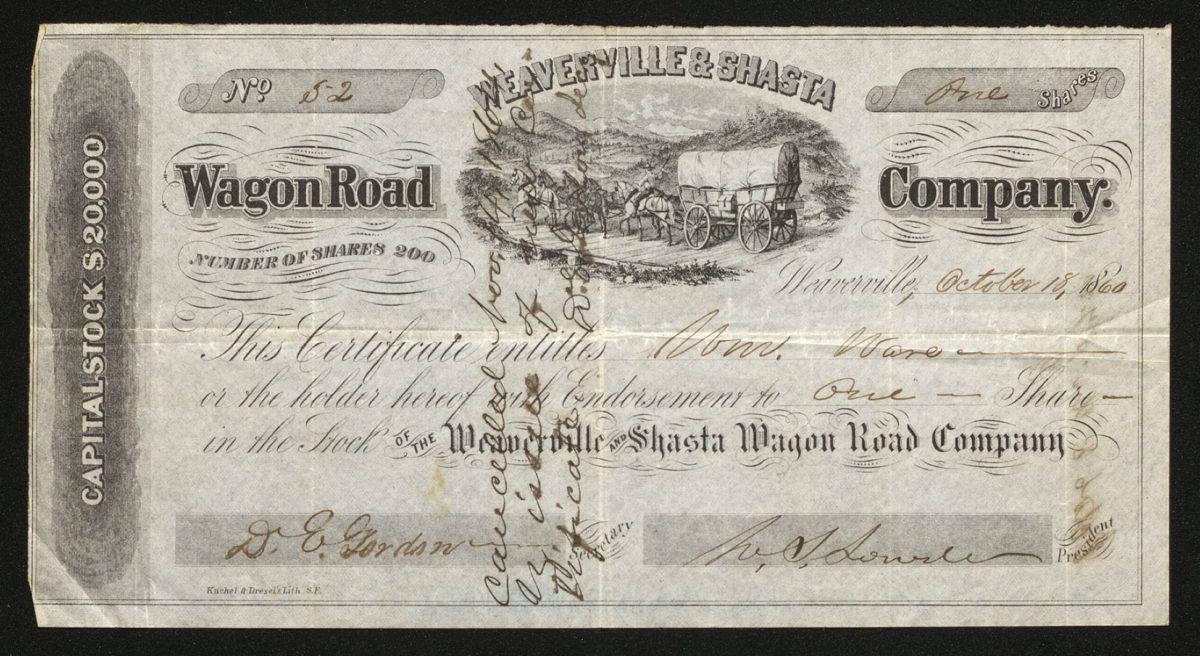
William Lowden: Express Rider and Wagon Road Entrepreneur
After making a name for himself in the Adam’s Express Rider Company, William Spencer Lowden settled near Weaverville, Oregon. There he founded the Weaverville & Shasta Wagon Road Company and created a wood-plank toll road to easily transport goods across Oregon where railroads didn't reach.
Header Image: The small town of Weaverville, California in 1856; courtesy California State Library [1].
“Thus with the advent of the wagon-road came all the luxuries of civilized living… whether the stockholders made anything out of the road or not, it was a grand improvement for Northern California.”

Redding & Weaverville Stage entering Shasta, California; courtesy Meriam Library Special Collections Department, California State University, Chico
William S. Lowden (1830-1912) traveled West to California in 1849 after hearing news of the discovery of gold. He worked as a miner, trader, and contractor over the years and earned fame as a rider for the Adams Express Company in 1854, a job similar to the Pony Express of 1860-1861. This was at the height of competition between express companies, which prided themselves on the speed of their deliveries. Lowden went up against a rider from Wells Fargo and ended up setting a record by making the one-hundred-mile ride from Tehama to Shasta in five hours and thirteen minutes—an average speed of about twenty miles per hour. It was reported that this was accomplished at night during a snowstorm and that Lowden changed horses by leaping from one to the next while moving, only touching the ground once during his journey. His disheartened opponent gave up the race.
Lowden settled near Weaverville in 1851 and started a ranch on the Trinity River. He recognized the isolation and difficulty of moving goods across the region and founded the Weaverville & Shasta Wagon Road Company in 1857. This 1860 certificate is for stock in the company, signed by Lowden, who served as the company’s president. The company completed construction on the wood-plank toll road—visible in the vignette on this certificate—between Weaverville and Shasta in 1858. The road was a success and opened shipping and transportation in the region, so surrounding communities soon built wagon roads to connect to Weaverville.
 University of Nevada, Reno
University of Nevada, Reno
